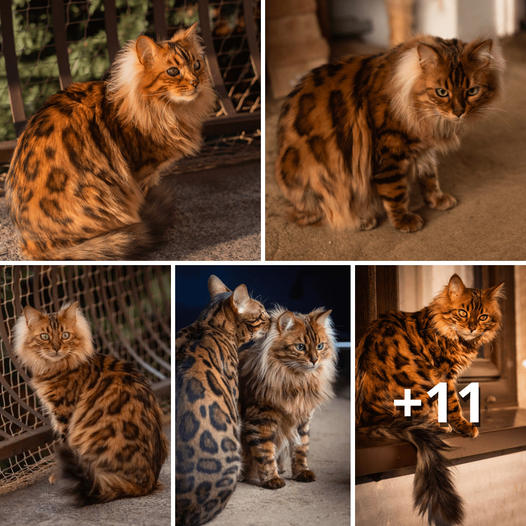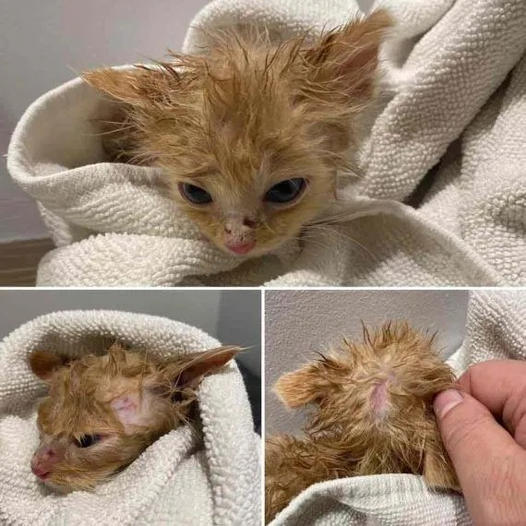The Silver Bengal feline is a highly sought-after cat due to its alluring silver fur and stunning patterns, which makes it a beloved choice for cat lovers across the globe. Congratulations if you have decided to bring this beautiful breed into your home! Not only do they possess striking features, but they also have unique characteristics such as minimal shedding and hypoallergenic tendencies. In order to ensure your Silver Bengal cat remains healthy and happy, we have put together essential tips on grooming techniques to promote optimal health and nutritional needs. It is also important to be aware of common health issues that Silver Bengals may face. Armed with this knowledge, you can provide your Silver Bengal with the best possible care. Lastly, it’s worth noting that Bengal cats are among the best family-friendly cat breeds around.
![10 Things to Know About the Silver Bengal Cat [year] (With Pictures) 1 silver bengal cat](https://i0.wp.com/thediscerningcat.com/wp-content/uploads/2023/09/silver-bengal-cat.jpg?resize=1116%2C800 ssl=1)
The Silver Bengal cat is a captivating feline that boasts a remarkable background. Its lineage can be traced back to a combination of domestic and wild Asian Leopard cats, which was first mentioned in a book by Harrison Weir in 1889. However, the term “Bengal” was not coined yet. It wasn’t until the 1960s that Jean Mill, an American breeder, started breeding domestic cats with wild Asian Leopard Cats to create the modern-day Bengal cat. By the 1990s, Bengal cats had become immensely popular but were only available in shades of brown and gold. It was during this period that Judy Sugden, a breeder, crossed Bengals with American Shorthairs to produce the first litter of Silver Bengal kittens. Today, Silver Bengals are in high demand due to their striking appearance and remarkable past. If you’re considering adding a Silver Bengal to your household, here are ten essential things you should be aware of concerning these incredible cats.
![10 Things to Know About the Silver Bengal Cat [year] (With Pictures) 2 silver bengal cat](https://i0.wp.com/thediscerningcat.com/wp-content/uploads/2023/09/silver-bengal-cat-1.jpg?resize=602%2C800 ssl=1)
The Silver Bengal cat has become a beloved feline for breeders and enthusiasts due to its uncanny resemblance to wild jungle cats. This striking breed was recognized as part of the Bengal breed in 2004 by The International Cat Association (TICA). However, TICA had previously established Bengal cats as a breed in 1986, which was later acknowledged by the Governing Council of the Cat Fancy in 1997 and the Cat Fanciers’ Association in 2016. Despite their recognition, the appearance of Silver Bengals in the 1990s postponed their acceptance as a variation within the Bengal breed until 2004.
![10 Things to Know About the Silver Bengal Cat [year] (With Pictures) 3 bengal-brown](https://i0.wp.com/thediscerningcat.com/wp-content/uploads/2023/09/bengal-brown.jpg?resize=1400%2C800 ssl=1)
The Silver Bengal feline is a breathtaking and exceptional breed due to its stunning, shimmering silver coat. They have distinguishable features such as longer legs and larger feet, making them even more impressive than other Bengals. However, this rare breed is not easily available in the market just like regular brown Bengals. It is challenging to estimate their global population due to their rarity. Even though they are scarce, the Silver Bengal is not the rarest color in the Bengal feline family. The Snow Bengal holds the title of being the rarest, with only one out of a hundred thousand Bengal cats having that color. If you are interested in owning a Silver Bengal cat, be prepared to pay a premium price as they can be quite expensive. You may have to spend over $1000 for a kitten.
![10 Things to Know About the Silver Bengal Cat [year] (With Pictures) 4 gray-bengal](https://i0.wp.com/thediscerningcat.com/wp-content/uploads/2023/09/gray-bengal.jpg?resize=1400%2C800 ssl=1)
The Silver Bengal cat is known for its distinctive appearance, which is attributed to the presence of the silver inhibitor gene. Despite its name, the coat of this breed is not actually silver in color. Instead, the gene responsible for this unique trait overrides the genes that determine the traditional brown coat of Bengal cats. A kitten with one parent passing on the silver inhibitor gene and the other passing on a brown gene will always be a Silver Bengal kitten. However, if both parents are Silver Bengals and pass on the brown gene, the kitten will be a normal brown Bengal. It’s important to note that the silver inhibitor gene may not completely remove all warm pigments from the coat. This can lead to a tarnished appearance with yellow or red pigments in certain areas. In addition to the classic Silver Bengal, there are also Blue Silver Bengals and Silver Spotted Bengals that are quite popular among cat enthusiasts.
![10 Things to Know About the Silver Bengal Cat [year] (With Pictures) 5 silver bengal cat](https://i0.wp.com/thediscerningcat.com/wp-content/uploads/2023/09/silver-bengal-cat-3.jpg?resize=800%2C800 ssl=1)
The Silver Bengal Cat may look like a wild and exotic creature, but this breed is actually quite friendly and affectionate towards their owners. However, they are not the type to sit still or cuddle up on laps. These cats are energetic and love to play, which can sometimes lead to unintentional damage around the house. To prevent this, it’s a good idea to invest in a cat window perch, hammock, or tree to offer a safe and entertaining space for them to climb and explore. By providing these setups, your furry companion can have a blast while keeping your belongings unharmed.
![10 Things to Know About the Silver Bengal Cat [year] (With Pictures) 6 bengal-cats-duo](https://i0.wp.com/thediscerningcat.com/wp-content/uploads/2023/09/bengal-cats-duo.jpg?resize=1400%2C800 ssl=1)
Before deciding to add a Silver Bengal cat to your household, it is essential to take some critical factors into consideration. Among these are space availability, food and energy requirements, joint health, and potential health concerns. As Bengals tend to grow quite large, it is necessary to ensure you have enough room for them to roam comfortably. They also require more food than smaller felines to support their growth and high levels of activity, so be ready to provide a well-balanced diet and engage in playtime with them. Since they are bigger cats, they may experience joint strain; hence, monitoring their mobility and seeking advice from a vet is crucial if you detect any issues. Moreover, Bengals have specific health challenges, so it is vital to ascertain their overall health status before welcoming one into your home. Considering these aspects carefully will help you determine if a Silver Bengal cat is the perfect addition to your family and lifestyle.
![10 Things to Know About the Silver Bengal Cat [year] (With Pictures) 7 silver bengal cat](https://i0.wp.com/thediscerningcat.com/wp-content/uploads/2023/09/silver-bengal-cat-4.jpg?resize=640%2C800 ssl=1)
Taking good care of your Silver Bengal cat is quite simple as they have a short coat and shed less, which makes them less prone to causing allergies and needing less grooming. Nonetheless, it’s still advisable to brush them lightly to eliminate any loose hair, particularly during spring shedding season. It’s also important to regularly examine their nails, ears, and teeth with vet-approved toothpaste. Giving them a high-quality diet that is rich in protein is vital for maintaining their general wellness. If you observe any indications of sickness, it’s best to consult with your vet for accurate diagnosis and treatment. Don’t take any health problems for granted – ensure that your furry companion remains joyful and healthy!
![10 Things to Know About the Silver Bengal Cat [year] (With Pictures) 8 bib-bengal-silver](https://i0.wp.com/thediscerningcat.com/wp-content/uploads/2023/09/bib-bengal-silver.jpg?resize=1400%2C800 ssl=1)
Some people consider Silver Bengal cats to be hypoallergenic due to their short coats and minimal shedding, but there is still debate among experts about the scientific definition of hypoallergenic. Nevertheless, these cats can be a great choice for people with allergies as they are less likely to cause reactions than long-haired pets. To ensure a healthy and long life for these cats, it is important to provide them with proper care and nutrition. A diet rich in meat protein is crucial for obtaining necessary nutrients like taurine. Exercise and mental stimulation are also essential, so playing with them every day and taking them for walks with a cat harness is recommended. Bengals love climbing, so providing designated areas like cat trees and shelves is important, as is giving them scratching posts. Owners should also be aware of harmful foods for Bengals, as certain substances can be toxic and potentially fatal. Being informed about these dangers will help protect the health of Silver Bengal cats.
![10 Things to Know About the Silver Bengal Cat [year] (With Pictures) 9 silver bengal cat](https://i0.wp.com/thediscerningcat.com/wp-content/uploads/2023/09/silver-bengal-cat-5.jpg?resize=1067%2C800 ssl=1)
It’s crucial to be mindful of what you feed your Silver Bengal cat, as certain foods can be harmful to your furry companion. Chocolate can be especially dangerous due to the presence of theobromine, which can cause heart problems and seizures in cats even in small quantities. Caffeine is also off-limits for felines since it can lead to tremors, rapid heart rate, and collapse. Grapes, raisins, garlic, chives, onions, and unripe tomatoes are all potentially hazardous and can cause severe health issues such as kidney failure, digestive problems, and damage to red blood cells. While tuna is generally safe in small amounts, overconsumption can lead to malnutrition and mercury poisoning. Avoid feeding your Bengal cat fat trimmings, bones, and raw eggs, which can result in digestive problems, choking, cuts, food poisoning, and skin/fur problems. Dog food is not suitable for cats since it lacks essential nutrients that they require. Although liver can be beneficial in moderation, excessive amounts can be toxic and cause deformities and bone issues. Finally, indulging in too many treats can lead to obesity and increase the risk of diabetes, so it’s important to prioritize a balanced diet and provide treats in moderation.
![10 Things to Know About the Silver Bengal Cat [year] (With Pictures) 10 curious-bengal](https://i0.wp.com/thediscerningcat.com/wp-content/uploads/2023/09/curious-bengal.jpg?resize=1400%2C800 ssl=1)
Although Bengals and Silver Bengals are generally robust cats, there are some health issues that may arise within this breed. If you are contemplating bringing a Bengal cat into your home, it is essential to be aware of these problems. One of the common problems is joint difficulties, particularly patella luxation in their knees. Weight loss or surgery can solve this problem. Bengals are highly sensitive to anesthesia, making them vulnerable to allergic reactions and heart failure. Another health problem is hypertrophic cardiomyopathy, a heart condition that typically develops in older Bengals, causing severe mobility problems and even death. Vision loss can also occur due to cataracts and progressive retinal atrophy if not treated with surgery. Lastly, thyroid problems are a frequent health issue in Bengals that cause weight fluctuations, depression, and vomiting. Knowing these potential health concerns will guarantee the best care for your feline companion.
![10 Things to Know About the Silver Bengal Cat [year] (With Pictures) 11 bengal-eyes](https://i0.wp.com/thediscerningcat.com/wp-content/uploads/2023/09/bengal-eyes.jpg?resize=1400%2C800 ssl=1)
The Silver Bengal cat is an extraordinary pet that adds a touch of wild elegance to any household. Their striking silver coats and unique markings make them a sight to behold.
While it is unclear whether or not they are hypoallergenic, their short coats and minimal shedding make them a great option for those with allergies. They require little grooming, allowing owners to spend more time enjoying their company.
Beyond their appearance, Silver Bengal cats have lively and playful personalities that bring excitement and amusement to any home. They are intelligent and curious creatures that make wonderful companions and are always eager for adventure and exploration.
Their lively and energetic nature ensures that they can keep up with any active household or participate in interactive playtime with their human family members. Additionally, Silver Bengals are known for their affectionate and sociable behavior. They form strong bonds with their owners and crave opportunities for cuddles and companionship.



